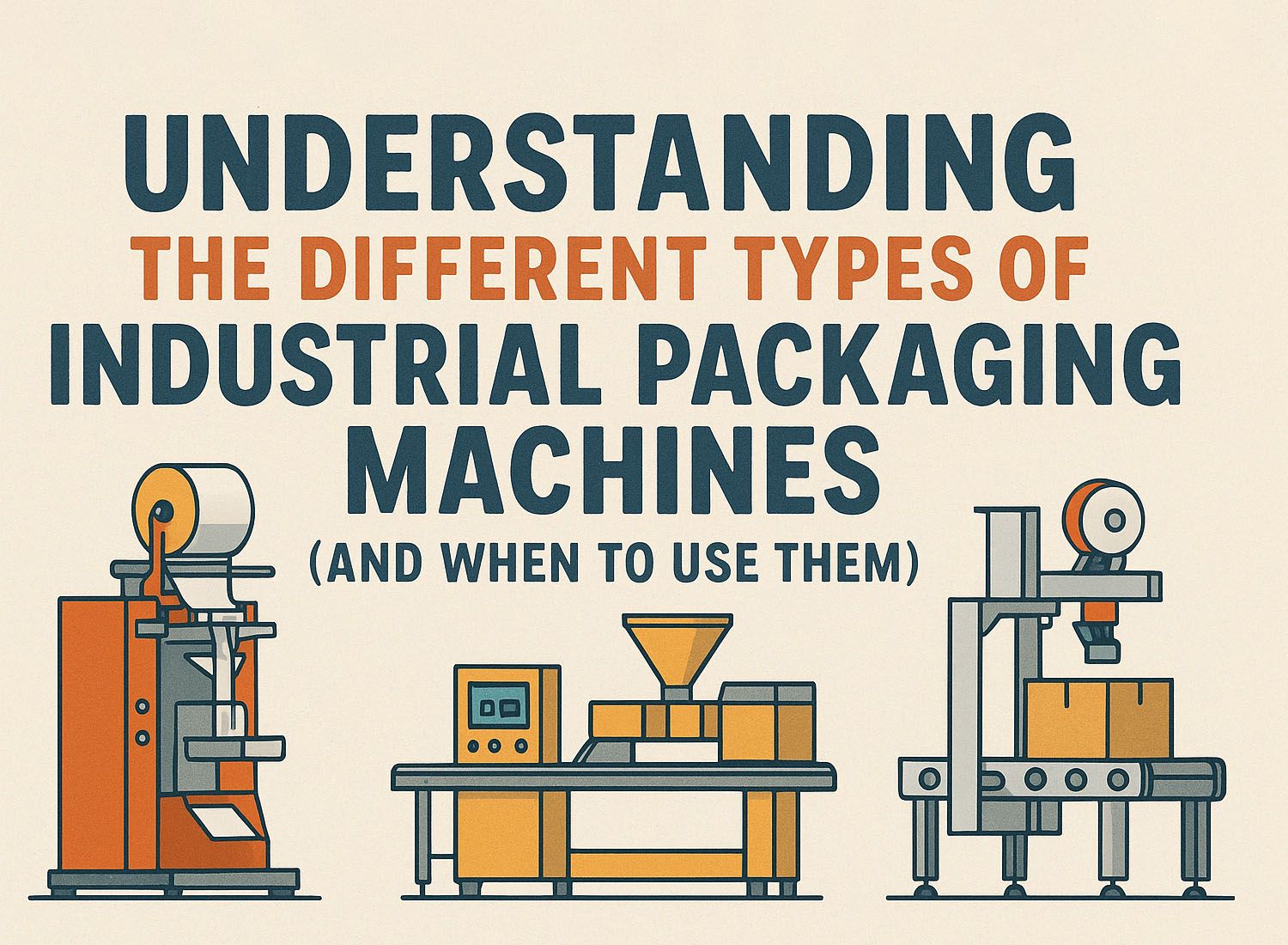In the fast-paced world of manufacturing, efficiency, accuracy, and consistency are vital to staying competitive. One of the biggest contributors to these goals is the industrial packaging machine—a broad category of equipment designed to automate and optimize the way products are packed, sealed, and prepared for shipment.
But not all packaging machines are created equal. Depending on the product type, production volume, and industry requirements, businesses often rely on different machines for specific applications. Understanding the strengths and use cases of these machines can help manufacturers choose the right solution for their operation.
1. Filling Machines
Filling machines are among the most common types of industrial packaging machines, used extensively in food, beverage, pharmaceutical, and chemical industries. They’re designed to accurately dispense liquid, powder, or granular materials into containers such as bottles, jars, or pouches.
Modern filling systems use precise sensors and automated controls to ensure consistent fill levels, reduce waste, and maintain hygiene standards—making them essential for high-speed production lines.
2. Sealing Machines
Once a package is filled, it needs to be sealed securely to protect its contents from contamination and leakage. Sealing machines use heat, pressure, or adhesives to create airtight and tamper-proof closures.
From vacuum sealers for perishable foods to induction sealers for pharmaceuticals, these machines play a key role in extending shelf life and maintaining product integrity.
3. Wrapping and Shrink Packaging Machines
Wrapping machines cover products or bundles with a layer of plastic film that is then shrunk tightly using heat. This method not only provides a clean, professional appearance but also keeps items protected during transport.
Shrink wrapping is especially popular in food and beverage industries, as well as for multipacks and promotional packaging.
4. Cartoning Machines
Cartoning machines automate the process of erecting, filling, and closing cartons or boxes. They’re commonly used for products like cereals, cosmetics, and medical supplies.
By automating this repetitive task, companies can significantly increase throughput while reducing labor costs and human error.
5. Case Packers and Palletizers
At the end of the packaging line, industrial packaging machines such as case packers and palletizers take over. These systems arrange finished products into shipping cases and stack them efficiently onto pallets for transport.
Palletizers—especially robotic ones—help streamline logistics by creating stable, uniform loads that minimize shipping damage and optimize space utilization.
6. Labeling and Coding Machines
Labeling machines ensure that each product is accurately identified with vital information such as batch numbers, expiration dates, and barcodes.
Automation in labeling not only improves accuracy but also ensures compliance with regulatory requirements—an essential consideration for industries like pharmaceuticals and food production.
Choosing the Right Machine for Your Operation
Selecting the right industrial packaging machine depends on factors like production speed, product type, packaging material, and available floor space.
Manufacturers often start by mapping their packaging workflow, identifying bottlenecks, and exploring opportunities for automation. A well-matched system can improve productivity, reduce waste, and enhance overall product quality.
The Bottom Line
Industrial packaging machines are the backbone of efficient manufacturing. Whether a company is packaging snacks, cleaning products, or medical supplies, the right combination of automation and equipment can make all the difference in consistency, safety, and cost-effectiveness.
As packaging technology continues to evolve—driven by smart sensors, robotics, and AI integration—businesses that invest in automation today will be better positioned to meet the demands of tomorrow’s market.
